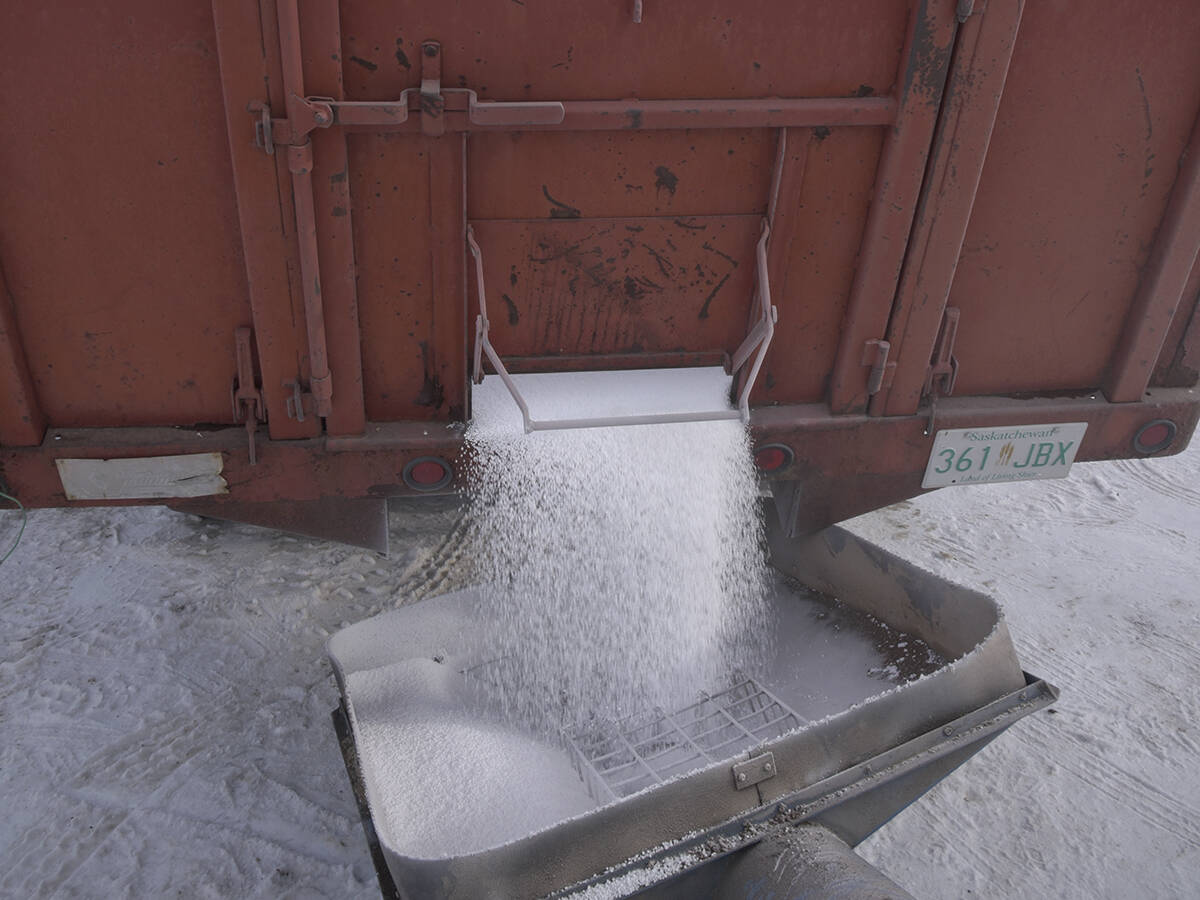Eventual elimination of the railway revenue cap is one of the recommendations in a much-anticipated review of the Canadian Transportation Act.
However, it remains to be seen whether Ottawa will act on any of the 286-page Emerson Report’s key recommendations.
It was tabled in Parliament Feb. 25.
The report contains several recommendations aimed at improving rail service for the western Canadian grain sector.
Most notably, it suggests that the maximum revenue entitlement (MRE), also known as the railway revenue cap, should be modernized immediately and eliminated within seven years in an effort to ensure a more “commercially grounded” railway transportation system.
Read Also

Urea prices heading higher: analyst
A fertilizer market analyst thinks urea prices have bottomed out and are heading higher through the first quarter of 2026.
The report, entitled Pathways: Connecting Canada’s Transportation System to the World, is the product of an 18-month review of the Canada Transportation Act led by former MP David Emerson.
Other key recommendations pertaining to the western Canadian grain sector include:
- expanded protections for producer car shippers that would give them the same treatment as other shippers under the Canada Transportation Act
- a review of the methods currently used to calculate railway interswitching rates
- steps that would allow extraordinary interswitching provisions introduced under Bill C-30 to lapse, returning mandatory interswitching distances to 30 from 160 km.
Many grain industry groups were still assessing the contents of the report earlier this week to determine its potential impact on farmers and grain shippers.
Norm Hall, president of the Agricultural Producers of Association of Saskatchewan, said he was optimistic that Ottawa will consult with grain industry stakeholders and listen to the concerns of grain shippers before implementing any of the report’s recommendations.
He said APAS and other grower groups will continue to push for a full costing review of grain transportation services and will encourage Ottawa to retain the revenue cap.
Hall said he is pleased that the report recognizes the rights of producer car shippers but acknowledged that the report delivered less than what he had been hoping for.
“I don’t know if I was expecting more, but I was sure hoping for more,” he said.
Caalen Covey, business development and markets manager with the Alberta Wheat Commission, said at first glance, the report’s position on interswitching and elimination of revenue cap provisions is concerning.
“I think the general feeling right now is that yes, the grain industry is a little bit dissatisfied with the initial findings of the report,” Covey said.
“We were definitely looking for something with a little bit more teeth in it, another tool in the tool box you might say.”
Covey said grain shippers have been pushing for regulatory changes that would facilitate the use of reciprocal monetary penalties that could be levied against shippers or railway carriers in the event that either party should fail to meet the terms of a service contract.
Covey said there was no mention of monetary penalties in the report.
“Some of (what’s contained in the report) is encouraging, but the removal of the MRE and reciprocal penalties not being included … is somewhat disappointing,” he said.
Manitoba’s Keystone Agricultural Producers said in a news release it was surprised by the proposed elimination of the revenue cap and a return to a less robust interswitching regime with reduced obligations for railways.
“I was quite surprised that the report said we should just sunset (the MRE) in seven years,” Mazier said.
“I thought everyone made it pretty clear that … (the MRE) was working, especially in the crop logistics working group … so I don’t know how the review panel came up with the recommendation to sunset it.”
Canadian National Railway, said it welcomed the report and the federal government’s plan to consult widely about its recommendations.
Canadian Pacific Railway offered no comment.















